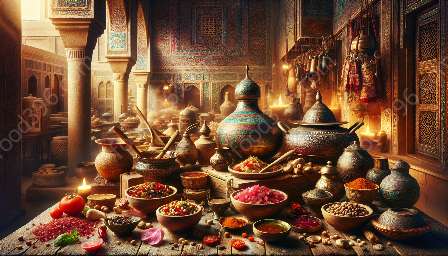Libyan cuisine offers a rich tapestry of flavors, drawing influence from the diverse cultural and historical background of North Africa. This unique culinary tradition is deeply rooted in the region's history and is a fascinating blend of Middle Eastern, Mediterranean, and Berber influences.
Perhaps one of the most captivating aspects of Libyan cuisine is its ability to capture the essence of the country's geography, history, and cultural diversity through the art of cooking. From aromatic spices to hearty stews, Libyan cuisine reflects the traditions and heritage of the people who have called this land home for centuries.
The Historical Tapestry of Libyan Cuisine
Libyan cuisine is a product of the country's rich history, which has been shaped by various civilizations, such as the Phoenicians, Romans, Arabs, Ottomans, and Italian colonizers. Each of these influences has left an indelible mark on the culinary heritage of Libya.
The Arab conquest of North Africa brought with it a wealth of spices and cooking techniques, which merged with indigenous Berber and Mediterranean culinary traditions to create the vibrant and diverse flavors found in Libyan cuisine today. Furthermore, the Ottoman and Italian occupations added their own unique flavors and cooking methods to the culinary mosaic of Libya.
The Flavors and Ingredients of Libyan Cuisine
Libyan cuisine is characterized by its bold and aromatic flavors, often achieved through the use of fragrant spices such as cumin, coriander, cinnamon, and chili. These spices add depth and complexity to dishes, creating a sensory experience that is both tantalizing and comforting.
One of the most iconic ingredients in Libyan cuisine is olive oil, which is used liberally in cooking and for drizzling over dishes. This is a testament to the country's long tradition of olive cultivation and the central role that olive oil plays in the Libyan culinary landscape.
Grains such as couscous and bulgur feature prominently in Libyan cuisine, as do an assortment of legumes and vegetables. Lamb and seafood are cherished protein sources and are prepared in a variety of ways, from slow-cooked stews to grilled delicacies.
Distinctive Dishes in Libyan Cuisine
Libyan cuisine boasts an array of dishes that showcase its unique blend of flavors and cultural influences. One of the most celebrated dishes is


